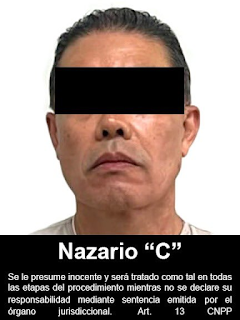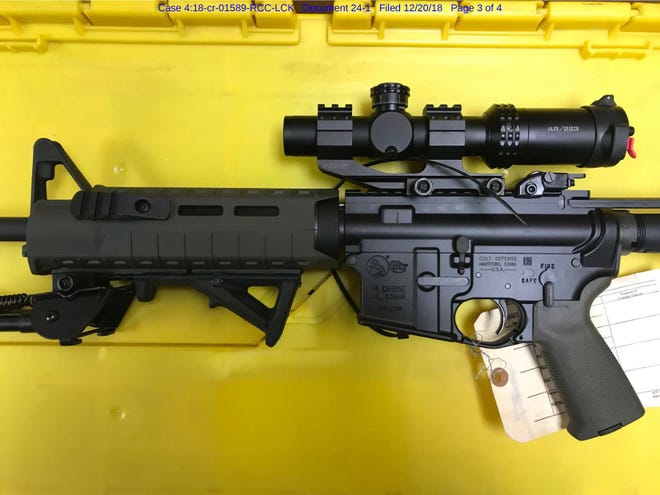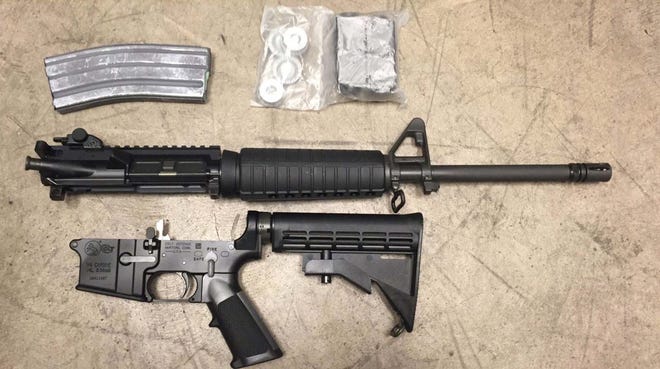El Chapo contributed money to the campaign of Enrique Peña Nieto in
order to become a candidate for the presidency, a former director of
intelligence for the DEA revealed.
Phil Jordan said that something bad happened between the PRI and El
Chapo because of his capture. He says
that it was a triumph for Mexico, that the president allowed the apprehension
of El Chapo.
El Chapo Guzman contributed financial resources to Peña Nieto’s
campaign, denounced Phil Jordan, former director of intelligence for the DEA in
El Paso, Texas.
“Something bad
happened between the PRI and the narco,” he said when being interviewed on a
special segment on Univision.
The interviewer
asked him: What evidence is there to confirm that El Chapo supported the
campaign of Peña Nieto?
“That is
documented in past campaigns of the PRI. El Chapo, Caro (Quintero), everyone
gave money to whoever was running for president. I don’t have the papers but there are
intelligence reports indicating that the cartel of El Chapo is very involved in
politics.”
Wouldn’t it be contradictory that the
government of Peña Nieto was the one who captured El Chapo but he received
money from him?
“Something bad
happened between the PRI and El Chapo Guzmán.
What I can’t tell you now, because I don’t know why they arrested him,
when he was paying millions of dollars to not arrest him, like how he paid
millions of dollars to let him out the previous time. He has all the money in the world.”
Jordan said that
the relationship between the narcos and Mexican politicians is well known; the
ones they need to operate and create their empires.
The interviewer
then asks: If Chapo talked about his ties with Mexican politicians, would we
have a big surprise in the political landscape of this country?
“There won’t be
any surprises because the PRI and Chapo know very well that he was well
involved in politics with money,” he replied.
Another question
asked was that if Chapo also bribed officials from the United States. Jordan replies:
“With the money
that El Chapo has anything is possible.
Corruption just doesn’t occur in Mexico, it also occurs in the U.S.”
He warned that the jail that El Chapo ends up
in, he can also run his business.
He didn’t rule
out, however, that El Chapo negotiated his capture.
He stated that with
Mexican narcos, there shouldn’t be more than one king, and with Caro Quintero
free, he may be the new king.
Here’s a conversation that’s been circulating social media. It’s an
excerpt from Rafael Loret de Mola’s book: Nuestro Inframundo: Los 7
Infiernos De Mexico released on January 1st, 2010. It’s a book written by a journalist who after
32 books, no one can deny it. Rafael
Loret has won many awards including: Medalla
Libertad de Expresión, Premio Jesús
Romero Flores, El Chimalli de Oro,
El Azteca de Oro, and Premio Quetzal.
-“Governor is
that you?”
-“Yes, who’s
calling?”
-“Take note
governor. I’m Joaquín Guzmán Loera. Does the name ring a bell? I know that you protected the hitmen of Arturo
Beltrán.”
-“I don’t know
what you’re talking about,” said Peña Nieto.
-“From this
moment on, I’m going to reserve your life for myself. You will never reach the presidency.”
Loret notes that
on the day of his wedding with Angélica Rivera, on November 27, 2010, Peña Nieto
seemed very anxious.
Source:
Revolución 3.0





.webp)






.webp)






.jpg)

















